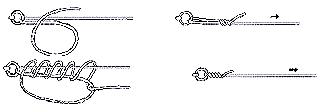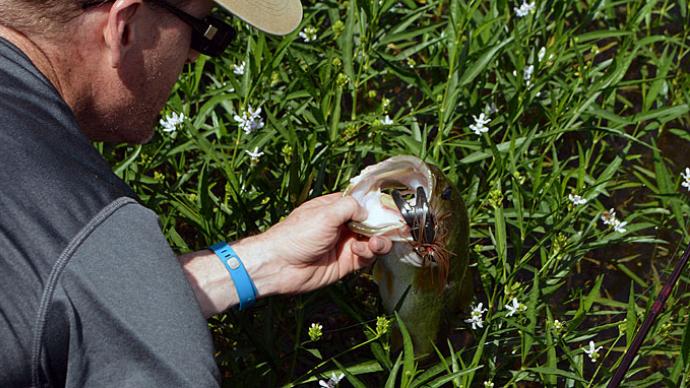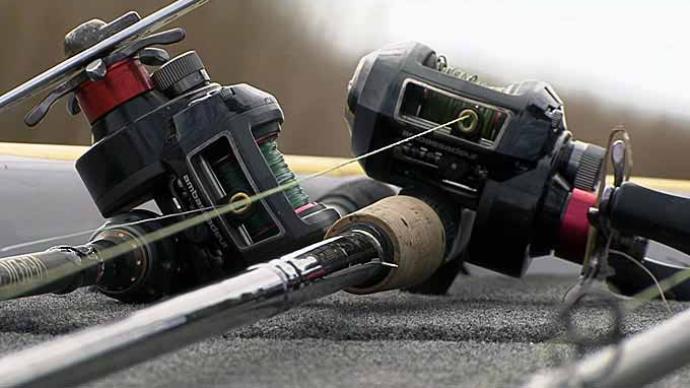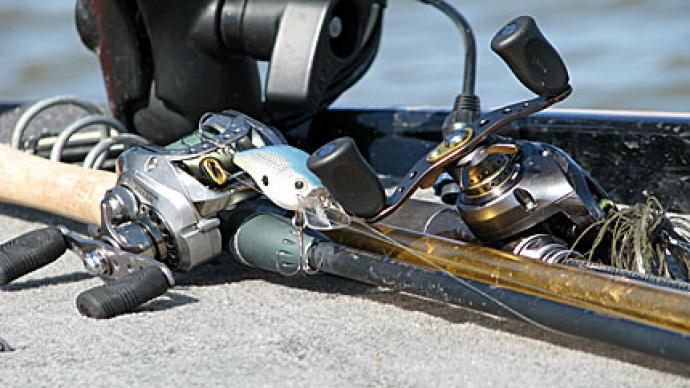The Improved Clinch Knot
(A general purpose fishing knot)
Image
The Uniknot
One of the best all purpose fishing knots!
Image

Palomar Knot
The Palomar fishing knot is a general-purpose connection used in joining fishing line to swivels, snaps, hooks and artificial lures. The double wrap of the line through the eyelet provides a protective cushion for added fishing knot strength.
Image

| 1. Double the line and form a loop three to four inches long. Pass the end of the loop through hook's eye. | 2. Holding standing line between thumb and finger, grasp loop with free hand and form a simple overhand knot. | 3. Pass hook through loop and draw line while guiding loop over top of eyelet. | 4. Pull tag end of line to tighten knot snugly and trim tag end to about 1/4". |
The Braid Knot
This special fishing knot has been proven to be one of the best for use with braided lines.
Image

| 1. Run Double loop through eye of hook or lure. | 2. Loop around end of line and standing part of braided line 8 times. Thread double loop back between the eye and coils. | 3. Tighten knot with a steady, even motion without hesitation. Trim double loop and end of braided line leaving about 1/4". |
Arbor Knot
The Arbor Knot provides the angler with a quick, easy connection for attaching line to the reel spool.
Image

| 1. Pass line around reel arbor. | 2. Tie an overhand knot around the standing line. Then tie a second overhand knot in the tag end. | 3. Pull tight and snip off excess. Snug down first overhand knot on the reel arbor. |
The Blood Knot
This fishing knot is used for tying two pieces of monofilament together of relatively equal diameters.
Image

| 1. Overlap the ends of the two strands that are to be joined and twist them together about 10 turns. | 2. Separate one of the center twists and place the two ends through the space as illustrated. | 3. Pull knot together and trim off the tag ends. |
Here's a closer look at the Blood Knot:
Image





